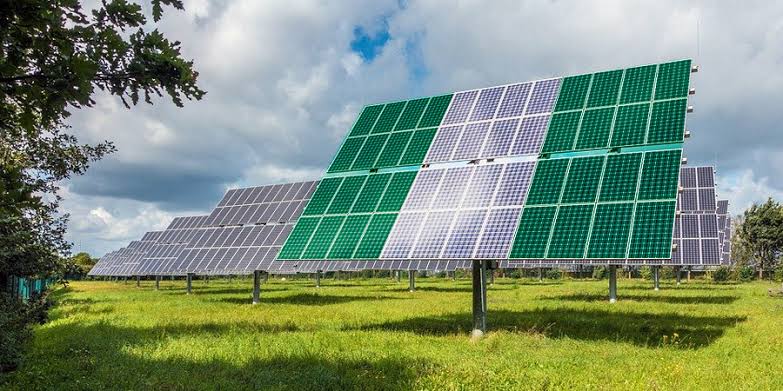The Federal Government of Nigeria has announced plans to construct a N71.19 billion solar cell factory in Nasarawa. Recently, Vice President Yemi Osinbajo officially laid the groundwork for the Solar Cell Manufacturing Factory.
The project, which consists of around 30,000 modules, is being built on the property in Karu Local Council, Nasarawa State.
The initiative, according to the vice president, is in keeping with Nigeria’s Energy Transition Plan, which calls for an increase in solar power use in the Nigerian energy mix by 2035.
Read also: Husk Power installs 8 Solar Microgrids across Nigeria
Nasarawa state has a lot of silicon and silica
Vice President Yemi Osinbajo said Gora, the Karu Local Government Area has an abundance of Silicon and Silica—major raw materials for the production of solar cells—which influenced the choice to locate the NASENI solar cell manufacturing factory there.
“The sensible decision to locate the factory in Gora, Nasarawa State, leverages translational research into biogeography, geological surveys, and mining cadastral reconnaissance, which have positioned Nasarawa as Nigeria’s home of solid minerals,” he stated. “The key raw materials required for the creation of solar cells, silicon and silica, are abundant in this area.”
“We thank the people of Nasarawa for hosting this significant initiative,” Osinbajo added.
“We congratulate you in advance for the good boost it will undoubtedly provide to the local economy; this historic achievement places Nigeria among the countries pushing the frontiers in using climate-smart alternative energy sources, notably solar electricity.”
“And, as we’ve heard, this project is the culmination of ten years of work; ten years ago, NASENI created its 7.5MW solar panel production factory, which is now capable of producing 21MW.”
To be constructed on around 16 hectares of land
Prof. Mohammed Haruna, Vice Chairman of NASENI, stated that the plant would be built on 15.8 hectares of land and will include a polysilicon section with a capacity of 1,000 tonnes per year, an ingot section with a capacity of 50MW per year, wafers with a capacity of 50MW per year, and solar cells with a capacity of 50MW per year.
“It will cost a total of $171,970,000 (N71.19bn), with 85 percent finance corresponding to $146,174,500 (N67.31bn) from the China Africa Development Fund via the Bank of China and 15 percent local counterpart funding similar to $25,795,500 (N11.88bn) from Nigeria,” he said.
“The other two projects are the Electric Power Transformer Manufacturing Plant at $123,990,000 and the High Voltage Testing Laboratory at $29,900,690, for a total cost of $325,860,690, with a total of $276,981,586.5 coming from China.”
He predicted that excess polysilicon capacity, as well as future expansion of wafer and solar cell production, will lead to exportation for foreign exchange earnings. The first and largest solar cell manufacturing factory in West Africa Osinbajo, branded the facility as West Africa’s first solar cell plant during the foundation-laying event.
The ceremony, according to Osinbajo, was the culmination of a decade’s labour by the National Agency for Science and Engineering Infrastructure, which the Buhari administration sponsored with a 1% yearly allocation from the federation account.
According to him, the project is required since it would be “obviously unsustainable” to add more carbon emissions to the $50 billion in diesel fuel used in Sub-Saharan Africa each year.
According to NASENI’s Chief Information Officer, Chinyere Obiorah-Ekwuazi, the facility is the most significant component in solar panel production used for solar energy generation, and when fully operational, the factory will be one of Africa’s largest Solar Cell Producing factories.
The solar cell factor would be a game-changer
Given the urgency of climate action today and the need of growing African green energy manufacturing and solutions, the Vice President noted that NASENI’s solar cell production factory would be a game changer. When fully operating, he believes the facility will meet and exceed all expectations.
On behalf of President Muhammadu Buhari, who chairs the governing board, the VP commended the NASENI leadership, led by its executive Vice Chair, Prof. Mohammed Haruna.
The Governor of Nasarawa State, Abdullahi Sule, who was also present at the ceremony, praised the Vice President for his care for the development of the state, country, and the welfare of its people.
“We in Nasarawa State, knowing that you touched lives, will never forget you, sir, in office and out of office,” Sule stated.




